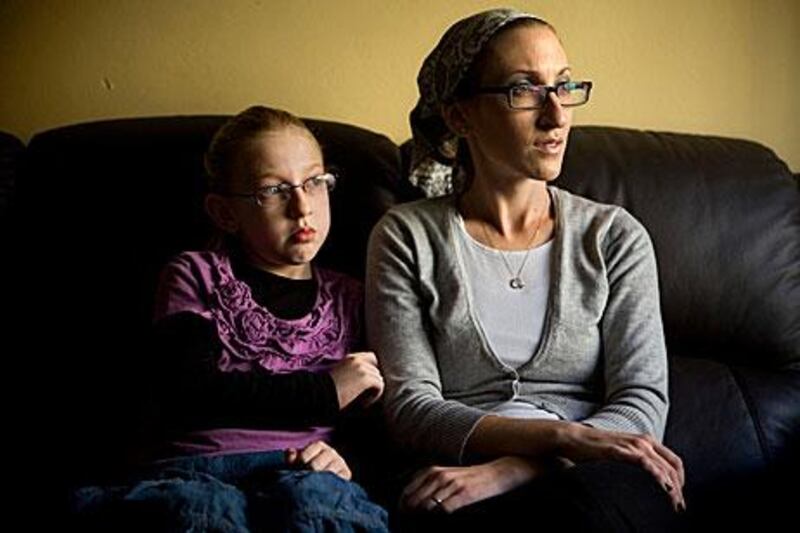TEL AVIV // Thousands of Israelis protested yesterday against rising Jewish religious coercion in a small town near Jerusalem, in a rally reflecting worsening relations between Israel's majority and the fast-growing ultra-Orthodox minority.
The demonstration followed two days of violence in the mostly religious town of Beit Shemesh, as dozens of extremist ultra-Orthodox men clashed with police officers dispatched to take down street signs ordering gender segregation in the public sphere.
Many Israelis, most of whom are secular or moderately religious, have been infuriated in recent days by reports of ultra-religious zealots trying to enforce their strict religious code on the town's other residents, especially the forced separation of men and women.
Most prominently, a report broadcast on Israeli television on Friday had drawn national attention by showing how an 8-year-old girl is spat on and harassed every day by the ultra-Orthodox on her way to school, about 300 metres away from her home.
The bespectacled second-grader, Naama Margolese, attends a modern Orthodox school that borders an ultra-Orthodox neighbourhood and that is viewed by many of the ultra-religious as trespassing into their territory.
The girl's plight helped ignite yesterday's protest, as organisers made a call on the social-networking site Facebook for supporters to attend the rally by starting a group called "One thousand Israelis are going to Beit Shemesh to protect little Naama". The group has drawn some 10,000 followers.
The increasing ultra-Orthodox pressure on the less religious residents of Beit Shemesh, a town of about 80,000 people located 30 kilometres west of Jerusalem, is the latest source of religious-secular tensions in the country.
Secular Israelis have increasingly become embittered over what they say is religious coercion and rising violence by the ultra-Orthodox.
Most recently, civil-rights advocates have condemned some ultra-Orthodox groups for forcing women to sit in the back rows of buses driving through their neighbourhoods while men sit at the front. In Israel it is illegal to force women to sit in the back portion of the bus but females who refuse are verbally and even physically attacked by male passengers.
In Jerusalem, several rabbis have pressured businesses, which often depend on clients from the city's large ultra-Orthodox population, to stop posting advertisements with images of women or employing females in any of their shops frequented by the strictly religious.
In Beit Shemesh, a more extremist sect of the ultra-Orthodox community has sent out a "modesty patrol" to enforce a strict dress code for women that calls for closed-neck, long-sleeved shirts and ankle-length skirts, and have erected signs ordering men and women to walk on separate pavements.
On Monday, dozens of ultra-religious men surrounded police officers who arrived in town with municipal inspectors to remove for at least the third time in a week a sign calling for women to avoid walking on certain streets frequented by religious males.
The men blasted the police officers as "Nazis" and danced in circles around them. Ultra-orthodox males later pelted a television crew covering the clashes with eggs, assaulted a videographer, threw rocks at police officers and set nearby rubbish bins on fire.
In the face of public condemnation of the attempts to enforce gender separation, the violence and religious coercion in Beit Shemesh has this week been lambasted by the country's leaders. Shimon Peres, the president, yesterday urged Israelis to attend the protest.
Speaking to journalists before a meeting with Israeli ambassadors, he said: "Today is a test not just for the police but for the entire nation. All of us, religious, secular, traditional … must as one man defend the character of the state of Israel against a minority that tries to break our national solidarity."
Eli Yishai, head of the ultra-Orthodox party Shas, on Monday also joined the criticism against the religious extremists in Beit Shemesh, calling the harassment of the schoolgirl "nauseating and disgusting" and adding that such behaviour goes against the teachings of the Hebrew bible.
Israel's ultra-Orthodox, known as Haredim - a Hebrew term referring to their fear of God - are a tightknit community that accounts for almost 10 per cent of the country's population of 7.7 million.





